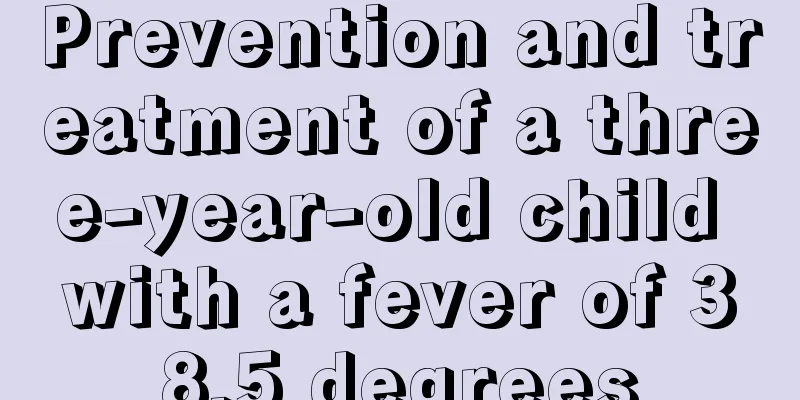What does the physical examination for the baby to enter the kindergarten check?

|
Children need to go to kindergarten when they are three years old. Before entering kindergarten, in order to ensure that children have a healthy body and avoid infecting other children, every child needs to undergo a physical examination. Generally speaking, during the inspection process, if any children are found to be mentally retarded or have infectious diseases, they will not be allowed to enter the kindergarten. Below, we will introduce you to the relevant knowledge about your baby’s physical examination before entering kindergarten. 1. Is a physical examination required before admission?The state stipulates that children who are about to enter daycare centers must undergo a comprehensive health check before entering the kindergarten to measure whether the child is suitable for collective life and to prevent certain infectious diseases from being brought into the kindergarten. Moreover, the health check before entering the kindergarten can also provide important information for daycare centers to better understand and grasp the growth and development characteristics and health status of each child. 2. Why do we need a physical examination? The purpose of physical examination is prevention. Generally speaking, if there are problems such as amblyopia, poor hearing or developmental delay, the best effect will be achieved if timely treatment is given before the age of 3. Therefore, we should attach importance to every physical examination during the growth stage to prevent problems before they occur. Many parents do not take children's regular physical examinations seriously. They believe that vaccinations are much more important than physical examinations. In fact, physical examinations and vaccinations are equally important for children. Only by promptly discovering problems in children's growth and development and taking effective measures can we ensure the healthy growth of children.
Generally speaking, the test results will not affect admission to the park, except for mental disorders that make it impossible to interact or infectious diseases. Specifically, health problems such as anemia and imbalance of trace elements found during the physical examination should be corrected promptly after admission to the kindergarten, or parents should be asked to take the children to the hospital for treatment; remedial measures should be taken in time for children who have not been vaccinated according to the prescribed procedures; children with infectious diseases such as hepatitis, conjunctivitis, tuberculosis, etc. will not be admitted to the kindergarten for the time being, and will only be allowed to enter the kindergarten after they recover and obtain a certificate from the doctor; children with a history of contact with acute infectious diseases will have their admission postponed, and can only enter the kindergarten after the isolation period expires. 4. What items should be checked during the physical examination for children entering kindergarten? First of all, we should understand that all physical examination results for admission to kindergarten are valid for 1-3 months (different kindergartens have different requirements), so this examination should be done one month before the baby enters kindergarten, preferably one week in advance, so that the physical examination report is most reliable. The purpose of the kindergarten requiring this report is to ensure the physical and mental health of all children. There are many children in the kindergarten. If one child has a problem, it will infect other children. No parent is accustomed to their child being infected by others, so doing a good job of self-examination is an effective guarantee to avoid infection. You need to bring the mother and child health handbook for the physical examination before entering kindergarten. The general physical examination includes the following routine items: height, weight, chest circumference, head circumference, abdominal examination, hearing, vision screening, five items of hepatitis B, etc. The examination will also include whether the child has a history of illness, allergies, family history, or history of infectious diseases. At the same time, there are some self-paid examinations, such as trace element testing, bone density testing, hepatitis B antibody testing, etc. This depends on the wishes of the parents. |
<<: What are the symptoms of diarrhea in babies?
>>: Symptoms of rickets in children
Recommend
Causes of fetal omphalocele
Newborn babies are small. However, a normal newbo...
Physical therapy for fever in 10-month-old baby
Fever is a very common thing for babies of a few ...
Treatment for itchy palms in children
Recently, more and more children have itchy palms...
How to treat vitiligo in children?
Vitiligo is a skin disease that mainly occurs in ...
What are the early symptoms of pneumonia in children?
Many children are prone to symptoms such as colds...
What causes strabismus in children?
Literally speaking, it means that the child's...
What causes sleepwalking in children? Parents must know
The problem of sleepwalking in children worries p...
Is it good for babies to drink digestive water?
We all know that baby digestive water is used to ...
What are the massage techniques for babies with fever?
A baby is a fragile little life and can be easily...
What should I do if my child has nose inflammation?
With the rapid development of industrialization, ...
Can I take a bath if I have roseola infantum?
Roseola infantum is a common disease. Babies suff...
How to deal with a crying baby
Parents will be very tired during work and need t...
Is it normal for a newborn to sneeze?
Sneezing is a very common phenomenon in our lives...
How to check Helicobacter pylori in children
Nowadays, many children are infected with Helicob...
What to do if your child has a dry nose
The weather in autumn is relatively dry, and the ...









